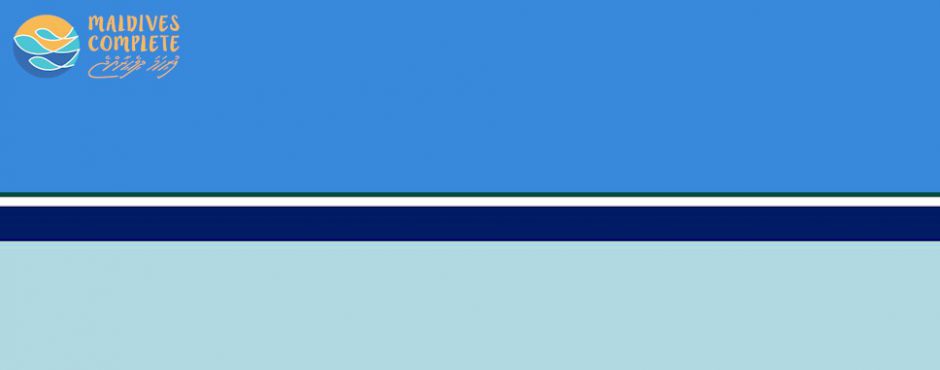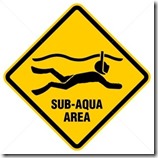Today is International Water Safety Day. So time for a quick edition of Maldives QI…
Q: What is the greatest danger of water fatality in the Maldives?
A: Eaten by sharks?
Q: Buzzz…Nope (in fact, the Maldives has not had a single report of a shark attack on a human)
A: An adrenalin sport like scuba diving?
Q: Buzzz…Nope. Nearly all scuba diving is run by very high quality PADI dive centres or liveaboards with very high safety standards and one of the strongest safety records in for diving in the world (contributed by the fact that many dive sites are not overly deep and are often relatively sheltered in atolls).
The most dangerous activity is the one that seems so alluringly easy – snorkelling. It’s not that snorkeling in the Maldives is particularly dangerous per se. In fact, one could argue it is some the safest snorkelling in the world. But it is those he mill pond calm waters in often shallow depths which lull guests into a exaggerated sense of security. When water is involved, you have a serious risk to respect no matter what the situation. As the saying goes, you can drown in an inch of water in your bathtub (and some people do). So today is the ideal good occasion for a refresher on making this inviting activity as safe as it appears (and often is) easy and thrilling.
The typical contents of a snorkel bag are snorkel, fins, mask, towel, and room key. But the “safe” snorkeler might want to bring along some extra items – eg. whistle, floatation aid. And my favourite snorkelling accompaniment – a snorkel guide. Not a book or map, but a trained, proficient, resort staffer to help and support your outing. They not only will be there to assist if anything goes awry, but they know all the best places to see resident critters on the house reef and can provide lots of great information about what you are seeing.
“TravelJody”, also a top contributor to the Maldives Forum on TripAdvisor, has written a superb piece on snorkel safety “Staying Safe whilst Snorkelling!” She goes through a catalogue of possible safety concerns including…
- Currents/Tides
- CoralRock Cuts
- Boats/Motorised Water Sports
- Snorkeling Transportation
- Sun
- Marine Life
- YOU!
Her tips include…
- Use well fitting equipment
- Be careful judging distance in water
- Wear a whistle
- Snorkel with buddy
- Get instruction
A few tips that I would add include…
- Consult the experts. Every resort has a dive centre and the majority of resorts have staff marine biologists both of whom know the resort waters intimately. They can not only tell you how the water behaves and where various hazards are, but also provide insider tips on where to see the best stuff and how (eg. maybe free dive to look under a ledge).
- Don’t let the weather fool you. It’s all about the water and currents in the ocean not the air. We have snorkelled in a monsoon with an expert who knew the currents and knew the conditions in the actual ocean were fine. Conversely, a warm, bright day might seem innocuous, but some current shift or other under the surface situation could create a surprise problem.
For a superb overview, I highly recommend another gem from Kurumba’s studios – “Snorkeling Tips for Beginner for Maldives Resorts.”
The final point really concerns over-confidence. Just because it is all calm and sunny on the exterior (which is it most of the time in the Maldives) doesn’t mean that some hazards don’t exist below the surface. Some people get skittish about sharks and even fish, but the real monster of the deep is the deep itself. Deep water where people go beyond their capabilities, and get into trouble. In any water activity, the risk of drowning is an ever-present danger whether it is in a community pool or even the tranquil waters of the Maldives.
This syndrome of false confidence is the key reason why some experts on the TripAdvisors protest against the use of flotation aids in snorkelling. They feel that such aids instil confidence in the weak swimmer to go beyond their limits and going beyond you limits imposes more risk (to yourself and to the reef) than the flotation aid mitigates. I agree that over-confidence is a risk, but a floatation aid will in nearly all cases provide critical protection against the greatest risk which is drowning so do consider bringing or wearing one (but just don’t let it drop your caution).
Other references…
Happy and safe snorkeling everyone!


Pingback: Best of the Maldives: Water Zorb – Club Med Kani - Maldives Complete Blog
Pingback: Best of the Maldives: Lagoon Coral Garden – Canareef - Maldives Complete Blog
Thanks for sharing this information, wonderful post, very useful this blog snorkeling Tips for Beginner for Maldives Resorts
Reethi faru is a nice place. It has this great beach, and in the evening sunset was so beautiful. The food was great and so were the service.